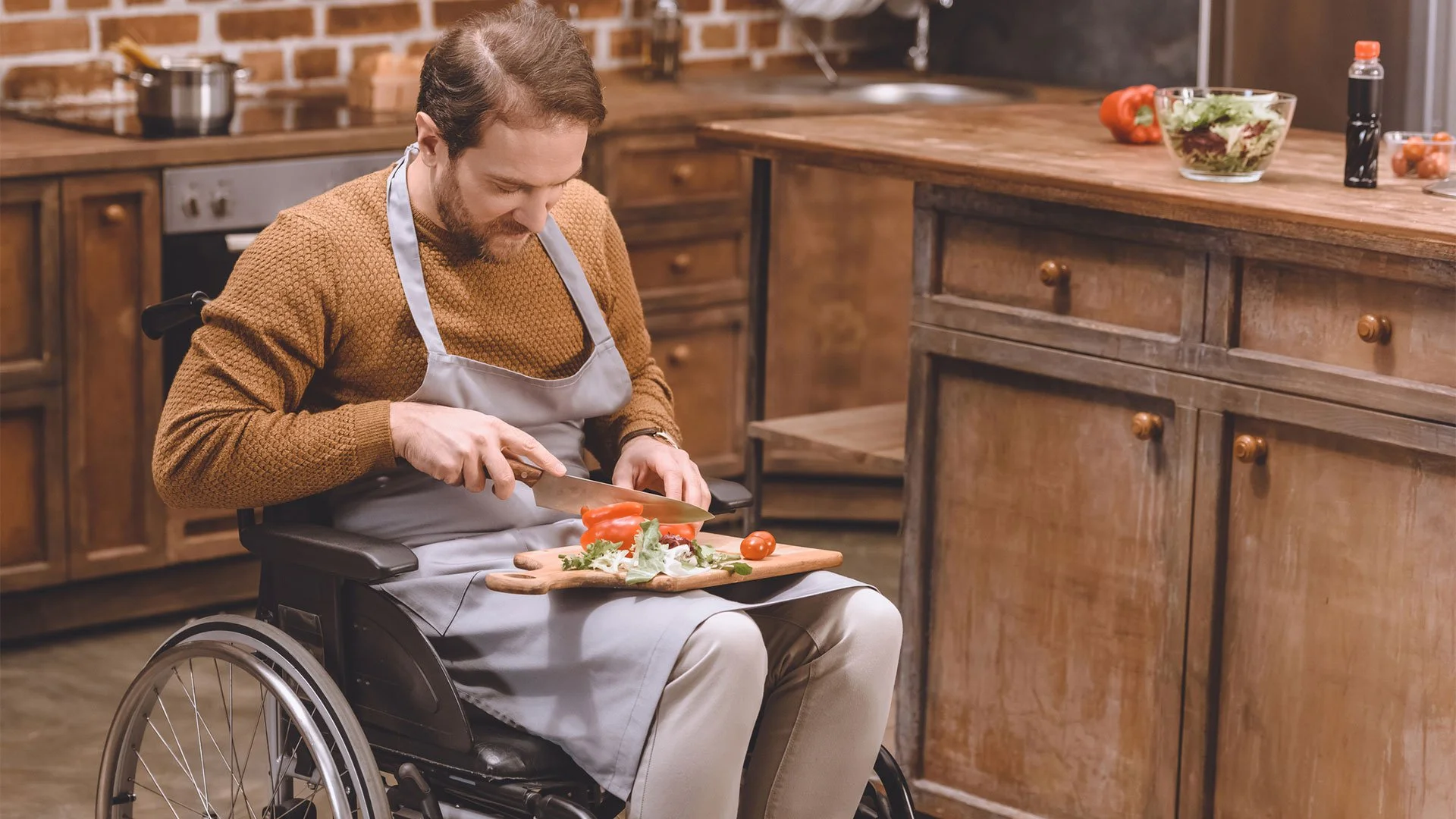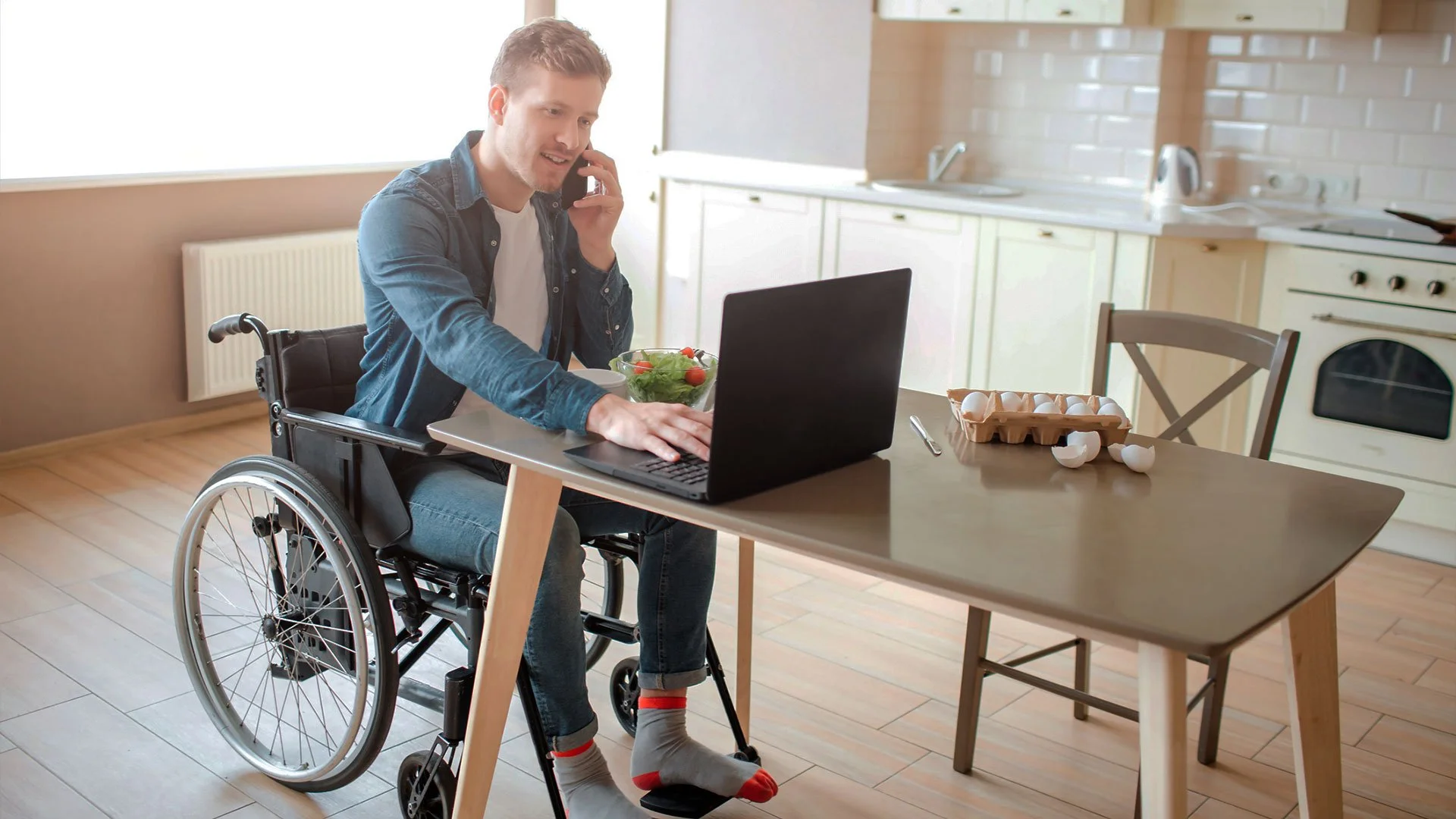Navigating Life Suddenly in a Wheelchair: So Now What?
Your world has just been turned upside down. One moment, you were walking, running, dancing through life. The next, you're facing a reality you never imagined: life in a wheelchair. The fear, the anger, the confusion – they're all valid, and they're all part of this unexpected journey you've been placed into.
But take a deep breath. You're not alone.
Thousands have walked – or rather, rolled – this path before you. They've felt gut-wrenching emotions, asked the same questions, and faced seemingly insurmountable obstacles. And they've not just survived; they've thrived, showing that there is real hope and resilience even in the face of such challenges.
This blog is your lifeline, your starting point in uncharted waters. Here, you'll find raw, honest stories from those who've been exactly where you are now. You'll discover practical advice for tackling everyday challenges, and most importantly, you've just found a community that deeply understands your needs and is here to support you every step of the way.
From Doubt to Determination: Rebuilding Your Confidence
“How Can You Feel Things Will Be Alright After a Life-Changing Injury?”
“At first, having the support and love of my family was the most important thing that made me know things were going to be okay. However, the physical limitations I faced constantly gave me anxiety. Once I started to push my physical limits with exercise and a proper diet, I realized that my limitations were more mental than physical. My attending physician at Craig Hospital was also in a wheelchair. When I asked him how he coped, hoping for a magical answer, he told me to take things one day at a time. Initially, I found this cliché and wanted to punch him, but I eventually understood that getting through one day was all I needed to focus on because tomorrow isn’t guaranteed. This mindset helped me realize that things would be alright. Overcoming my limitations, even those I had when I was able-bodied, made me confident that everything would be okay. I also knew it would require ongoing effort, and I’m okay with that. In many ways, I’m better off now than I used to be.”
Finding the strength to push through each day is crucial. Embracing a daily structure helps you set achievable goals and maintain a routine that fosters progress and stability. Support from a community that understands your journey, along with real accountability, can make each day more manageable. By focusing on one day at a time, you can gradually overcome physical and mental barriers, finding confidence and hope in the process.
You’re Going Through a Lot: Redefining Priorities in Recovery
“Looking back, what aspects of your spinal cord injury recovery were initially overemphasized but turned out to be less crucial than you thought?”
“I was fortunate to receive some of the best care in the world for spinal cord injuries at Craig Hospital. Maintaining a healthy sexual relationship was often discussed early on, and it was indeed on my mind. However, there were far more important things to focus on in my day-to-day activities. Doctors emphasized options like Viagra, but I never felt it was as important as my overall health and physical well-being. Prioritizing my strength and mental well-being became my main focus, which I now realize was the best approach.”
It’s important to understand that some aspects of recovery might seem crucial initially but may become less significant as you focus on overall well-being. Concentrating on your physical health, mental strength, and resilience is essential. A structured approach and unprecedented support can guide you through this prioritization, helping you focus on what truly matters in your recovery journey.
The Wake-Up Call: Cherishing Our Abilities and Moments
“Why Should We Never Take Our Physical Strength for Granted?”
“Before my injury, I wasn’t afraid of climbing ladders, heights, or doing home maintenance tasks. Seeing people take extreme risks on social media today makes me realize how easily we take our physical abilities for granted. Falling 20 feet and sustaining a spinal injury changed my perspective entirely. We can never be sure of tomorrow, and this understanding has taught me the importance of living in the present. Put your phones down, have dinner with your family, and tell your loved ones how much they mean to you.”
Realizing the fragility of our physical abilities can be a profound lesson. Living in the present and appreciating what you can achieve daily is vital. Establishing a daily structure that encourages mindfulness and appreciation helps you stay grounded. By sharing meals with family and expressing love, you create moments of connection and gratitude that reinforce the importance of the present.
Looking Back: What I Wish I'd Known from Day One
“What Post-Injury Focus Would Have Made a Difference?”
“I knew post-injury would require extreme discipline and a regimented routine, which I didn’t fully grasp before. The mental discipline needed to get through a day in a wheelchair, dealing with pain and frustration, is immense. A daily routine involving significant physical activity is crucial, even if it seemed nearly impossible initially. My injury has brought me closer to myself, as a person, a man, a father, a son, a friend, and a colleague. By participating in life and not being reclusive, I have become an inspiration to many, and more importantly, to myself. Programs like Bloc Life and people like Josh Snyder understand the importance of community for those considered disabled and provide a space for us to gain physical strength together.”
Adapting to life post-injury requires immense mental and physical discipline. Embracing a structured routine and real accountability helps you stay committed to your goals. Being part of a supportive community encourages you to engage in life and not become reclusive. Sharing your journey and progress can inspire others while reaffirming your own strength and resilience.
Bridging the Gap: Unmet Needs in Spinal Cord Injury Care
“What Immediate Needs Are Not Fully Addressed by the Medical World for Spinal Cord Injuries?”
“The medical world is still learning how to better treat spinal cord injury patients. While ADA compliance and accessibility have improved, there is still a long way to go. The family and the injured person face overwhelming challenges, from understanding insurance benefits to grasping the injury’s extent. Developing a series of frequently asked questions, checklists, and resources could alleviate some of this burden, guiding families through rehabilitation options and setting realistic expectations without sugar-coating the challenges ahead.”
Navigating the complexities of life post-injury requires comprehensive support and resources. The medical world continues to evolve, but immediate needs often go unmet. Access to a community offering unprecedented support can make a significant difference.
Finding Your Tribe and Your Strength
Remember, even though your world may have changed, you're not alone in navigating this new journey. Living life on wheels involves more than just overcoming physical challenges—it's also about developing mental resilience and connecting with a supportive community. Although it may feel isolating at first, programs like our AAIM offer more than just physical training; they provide an essential support network of individuals who truly understand what you're going through. By focusing on your mental well-being, staying physically active, and taking advantage of these community resources, you're adjusting to your new reality and gaining the strength, confidence, and relationships needed to thrive.
Remember that this chapter is not about limitations; it's about uncovering new opportunities and redefining what you can accomplish. Even as your world changes, you're not alone. Life on wheels is about more than physical challenges. Programs like AAIM offer support for mental health and community connection. By prioritizing mental well-being, staying active, and embracing community resources, you're building the strength, confidence, and relationships to thrive in this new reality.
Ready to take action?
Bloc Life is committed to empowering all individuals to achieve their health and wellness goals through education and support. Join our adaptive and inclusive community to unlock your full potential.



